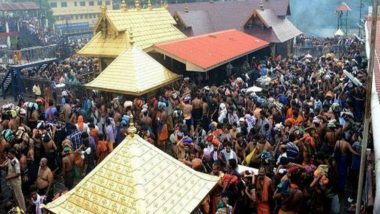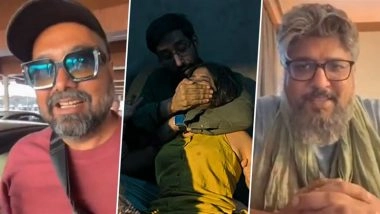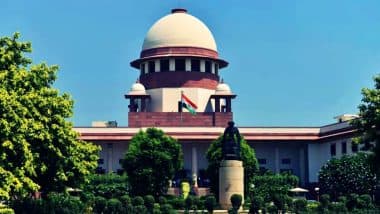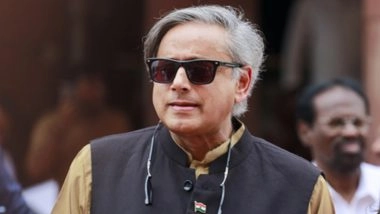In a crucial judgment today, Supreme Court has allowed women across the age group 10-50 years to enter the Sabarimala Temple. Here are some of the stories of the Sabarimala Verdict:-Sabarimala Temple Verdict: Doors For Ayyappa Darshan Open For Women of All Age Groups, Rules Supreme Court Saying Biological Reasons Can't be Given Legitimacy.Sabarimala Women's Entry Verdict: Justice Indu Malhotra, Lone Woman Judge in SC Bench, Dissents; Here's What She Said.Sabarimala Verdict by Supreme Court Highlights: 'Women are Worshipped like Goddesses, Temple Doors Cannot be Closed For Them'.Thank you for staying with us. For more news log on to www.latestly.com
SC strikes down the rule prohibiting entry of women between the age of 10-50 years by 4:1 majority. CJI Dipak Misra, Justices AM Khanwilkar, Nariman, Chandrachud are in Majority. Justice Indu Malhotra dissents.
What constitutes essential religious practice is for the religious community to decide, not for the court. Notions of rationality cannot be brought into matters of religion, says Indu Malhotra.
Religious Practices Cannot be Solely Tested on the Basis of Article 14, Says Indu Malhotra- the only dissenting judge.
Devaswom Board has said that they won't file a review petition after SC has opened the doors of the Ayyappa Temple to women across age groups.
Justice Chandrachud said- Article 25 protects all persons, it means every individual in the society.
Devotees of Ayyappa do not constitute a separate religious denomination, CJI Dipak Misra.
Rahul Easwar will file a review petition after SC decides to open Sabarimala Temple to women across all age-groups.
SC has thrown the doors of the Ayyappa Temple to women across all age-group. Sabarimala Rules violates Article 14, 25 of the Constitution.
The bar on entry of women between age of 10 and 50 years is not an essential part of the religion, CJI Dipak Misra.
New Delhi, September 28: Another crucial verdict will come out today which will decide on whether women pilgrims will be allowed to enter the Sabarimala Temple. The petition seeking upliftment of women's restriction at the temple, was filed in 2006 by the Indian Young Lawyers Association. The case, however, was taken up for hearing in January 2016. Deity Can’t Suddenly Disappear for 5 Days to Reappear Later, Says Supreme Court on Proposal to Allow Women’s Entry 5 Days a Month.
In July, while hearing the pleas on lifting the age-old ban which bars women in the age group of 10-50 years, Justice Rohinton Nariman had questioned the stand of Travancore Devaswom Board (TDB) in Kerala High Court for allowing women in the temple for 5 days in a month. Nariman, one of the judges in Constitution bench, said deity cannot suddenly disappear for five days only to reappear later.
The norm to ban women in the above mentioned age group is deep-rooted in an orthodox assumption that that menstruating women are impure. Those defending the rule claim that Lord Ayyappa had taken an oath of celibacy, which makes it mandatory to prevent women from offering direct worship to his deity.
The Supreme Court's five-judge Constitution Bench comprising of Chief Justice Dipak Misra and senior judges had earlier said that the banning of women from the temple was against the constitutional mandate. “Your (intervener) right to pray being a woman is equal to that of a man and it is not dependent on a law to enable you to do that,” the bench observed. Meanwhile, the Kerala government too made it clear that it supported the right of women to enter the shrine and pray.
Justice DY Chandrachud, who was part of the five-judge constitutional bench that was hearing the case, had said earlier that every woman is also the creation of God and why should there be discrimination against them in employment or worship.
Stay with us for all the latest updates on the Sabarimala verdict.













 Quickly
Quickly






